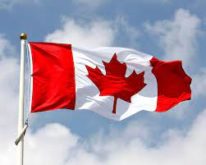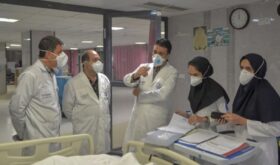iranwire – Vaccinations in Iran will start in February with imported vaccines, President Hassan Rouhani announced at the weekly meeting of the National Coronavirus Taskforce. “Foreign vaccines are a necessity until local vaccines are available,” he said in televised remarks, without giving details. Earlier this month Supreme Leader Ayatollah Ali Khamenei banned the government from importing vaccines from the United States and the UK.
Rouhani warned against a new wave of coronavirus which, he said, would mean “the closure of some businesses, creating new problems in society and disrupting services. Therefore, we should intensify supervision and make a public effort so that the country does not face a new wave of this disease…There is still the concern that we will see another surge of this disease again and if we are not careful, we may face the mutated virus.”
In recent weeks at least six cases of a more contagious coronavirus variant, first detected in the UK, have been identified in Iran, raising the fear that a fourth wave of the pandemic will be more deadly and more difficult to contain.
Increase in Travel Raises Alarm
Dr. Nader Tavakoli, deputy director of the Tehran Coronavirus Taskforce, warned that although at the moment the number of hospitalizations is stable, some factors including increasing travel to the south of Iran, the reopening of schools and negligence in following health guidelines are raising fears that a fourth wave of coronavirus is on the way.
Referring to the reopening of schools, Dr. Tavakoli said that in the second and third waves of the virus the rate of infections among the under-20s increased and this, by itself, is an alarming development and shows that health protocols must be enforced more strictly in schools.
“In recent days the number of infections fell but now this number is slowly going up again,” said Dr. Masoud Mardani, a member of the National Coronavirus Taskforce’s Scientific Committee. “For the moment, we cannot predict whether we will witness a fourth wave of the virus or not,” but if health protocols are not observed “we shall undoubtedly witness another wave and another peak,” he said.
Doctors Defend Alireza Raeesi
Last week Alireza Raeesi, spokesman for the National Coronavirus Taskforce, came under attack from the clergy after he criticized religious gatherings and ceremonies for not following health guidelines. They called for his dismissal and some even called for him to be put on trial. Raeesi apologized, but some clergymen, including Mojtaba Zolnoori, a member of parliament, found his apology “inadequate” and again asked that Raeesi be removed and punished.
Iran’s Association of Medical Scientific Societies issued a statement supporting Alireza Raeesi. Emphasizing that such “unexpected” and “harsh” reactions to Raeesi’s statements discourage the medical community under these difficult conditions, the statement praised him for being one of the most “serious” and “compassionate” managers of the coronavirus pandemic since the beginning. The statement added that he should be praised for his work.
Defending himself, Raeesi said that “it is our duty to warn because we are responsible for the people’s health and when it comes to health we shall not compromise. We shall stand firm and we shall issue warnings.”
Provinces Continue to Struggle
The alert level in the province of Mazandaran has been lowered from red to orange and now there are no cities in Iran in a red state of alert, according Dr. Sima Sadat Lari, the Health Ministry spokeswoman, who nevertheless warned that in some provinces the number of hospitalizations is increasing because people fail to follow health protocols and think that the situation is back to normal.
Lari said currently 18 Iranian cities are in an orange state, 154 are on a yellow alert and 276 are blue. In the last week provinces of Mazandaran, Gilan and Hamedan had the highest number of hospitalizations and Covid-19 fatalities were highest in Mazandaran, Gilan, West Azerbaijan, Ardebil and Golestan.
In the southern province of Hormozgan the number of people with coronavirus symptoms who visited hospitals in the past week increased by 15 percent, the number of positive tests was up by three percent and the number of patients in intensive care units by seven percent, according to Dr. Fatemeh Noroozian, spokeswoman for Hormozgan University of Medical Sciences. She said these increases were the results of more travel, family get-togethers and non-compliance with health protocols.
The official Covid-19 death toll in Hormozgan since the pandemic started now stands at 988 and currently 116 coronavirus patients are hospitalized across the province. Of this number, 31 are in ICUs and 17 are in a critical conditions. Also, 1,066 Covid-19 patients are quarantined at home in Hormozgan.
In the southwestern province of Kohgiluyeh and Boyer-Ahmad, the number of visits to hospitals by patients suffering from coronavirus symptoms has increased as well. Currently 104 people with suspected or confirmed cases of Covid-19 are hospitalized in the province, five of them in intensive care units, according to Dr. Parviz Yazdanpanah, president of Kohgiluyeh and Boyer-Ahmad University of Medical Sciences. A total of 22,912 Covid-19 patients in the province have recovered.
In Alborz two more Covid-19 patients died in the past 24 hours and the coronavirus death toll in the province reached 2,645, according to Dr. Mohammad Fathi, president of Alborz University of Medical Sciences. In the same 24 hours 20 new coronavirus patients were hospitalized in Alborz, bringing the total number of hospitalizations in the province to 296. As of now, 26,916 Covid-19 patients in Alborz have recovered.
Reporting that the number of coronavirus cases in Kermanshah is increasing, Houshang Bazvand from the provincial government said that “unfortunately the number of hospitalizations has increased from 130 to 170 and a lot of damage will occur if health guidelines are not followed. Not only people’s lives but their livelihoods will also suffer.” He also warned that if health guidelines are not followed across the province, all coronavirus restrictions and lockdowns including traffic curfews and the lockdown of businesses will be imposed again.
Iran’s Latest Coronavirus Statistics
In her daily briefing for January 23, Health Ministry spokeswoman Dr. Sima Sadat Lari announced the official coronavirus statistics for the past 24 hours:
coronaviruscovid-19hassan rouhanihealthpoliticsprovinces
 Shabtabnews In this dark night, I have lost my way – Arise from a corner, oh you the star of guidance.
Shabtabnews In this dark night, I have lost my way – Arise from a corner, oh you the star of guidance.


